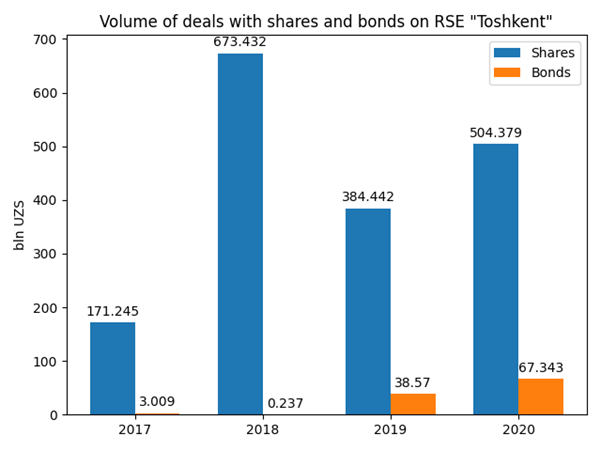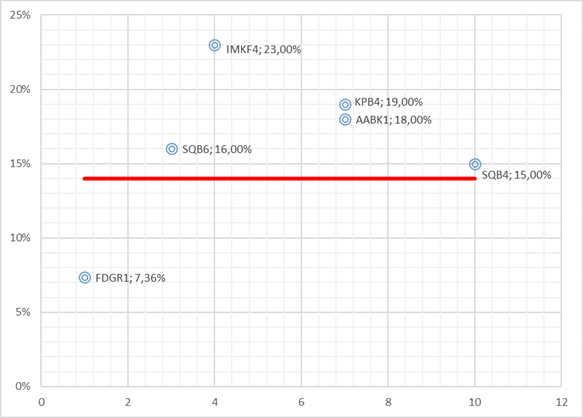Due to various reasons, entrepreneurs rarely see corporate bonds as a competitive way to raise debt financing. At the same time, issuing corporate bonds allows the borrowing company to determine the interest rate and the issue date independently. This gives the company more options, making its debt more flexible.
Corporate bonds - bonds issued by joint stock companies, limited and additional liability companies.

Corporate bonds can be issued by open or closed subscription. The essential difference between them lies in the fact that with an open subscription, the placement of securities occurs between an unlimited number of investors, while with a closed subscription - among a previously known limited number of investors. Thus, the borrowing company can pre-select a range of potential investors, based on their goals. Choosing a private subscription can save the bond issuer from the need for a public announcement and advertising campaign, thereby reducing costs. The issuance of corporate bonds by open and closed subscriptions also differs in the process.
The company goes through 6 main stages to issue bonds by open subscription:
- Adoption and approval of a decision on the issue of bonds.
- Approval of the prospectus.
- State registration of the bond issue and passing the listing of the RSE “Toshkent”.
- Disclosure of information on the issue of securities.
- Placement of bonds at the RSE “Toshkent”.
- Notification of the results of the bond issue after the successful placement of bonds.
In order to issue bonds by open subscription, the borrower will need audited financial statements and a rating score. The company also must demonstrate positive indicators of profitability, solvency, financial sustainability and liquidity in the last financial year.
Issuance bonds by closed subscription imposes the borrower with a duty to make and approve a decision on the issue of bonds and state registration of the issue of bonds. After the successful placement of bonds, the company notifies about the results of the bond issue.
While choosing an open subscription, a corporate bond issuer launches an advertising campaign to attract investors, opting a closed subscription may make it challenging to find ready-made investors. Despite this, for companies that do not have ready investors, it is possible to issue corporate bonds even by closed subscription. The International Issue Syndicate (IIS), established in 2001 at the initiative of the investment bank Ansher Capital and with the support of a number of commercial banks, insurance companies, brokerage, consulting and investment companies, allows the issuer of bonds to connect with service providers and potential investors. In the period from 2001 to 2008, IIS has successfully realized 28 issues of corporate bonds.
After the onset of the financial crisis in 2008 and the subsequent downturn in the securities market of Uzbekistan, the work of the IIS was paused.
Nevertheless, in November 2020, on the ground of the adopted capital market reforms, when limited (and additional) liability companies were once again allowed to issue corporate bonds, a regular meeting of the IIS members was held to organize the issuance and placement of corporate bonds.
As of March 15, 2021 6 issues of corporate bonds are available at the trades of the RSE "Toshkent", which 4 issuers are joint-stock commercial banks and the interest rate on their bonds is pegged to the policy rate.
1 issuer is a development company in the form of LLC; the interest rate is pegged to the rate of devaluation/revaluation of the Uzbek sum against the US dollar; and 1 issuer is a microcredit organization, with a fixed interest rate of 23% per annum.

Additional features
The international securities market includes many instruments of the debt market. In order to create the possibility of additional sources of financing for Uzbek companies, at the plenary meeting of the legislative chamber of the Oliy Majlis of the Republic of Uzbekistan, a draft law was adopted in the first reading, providing the introduction of amendments and additions to include the concept of exchange bonds in the legislation.
Exchange bonds are a short-term instrument of the debt market that does not require registration within an authorized registering body. Registration of exchange bonds takes place on the stock exchange. The circulation period of exchange-traded bonds is up to 1 year.
The main laws and regulations governing the issuance of corporate bonds are:
- Law of the Republic of Uzbekistan "On the Securities Market"
- Rules for the issue of securities and state registration of issues of equity securities.





















leave a comment